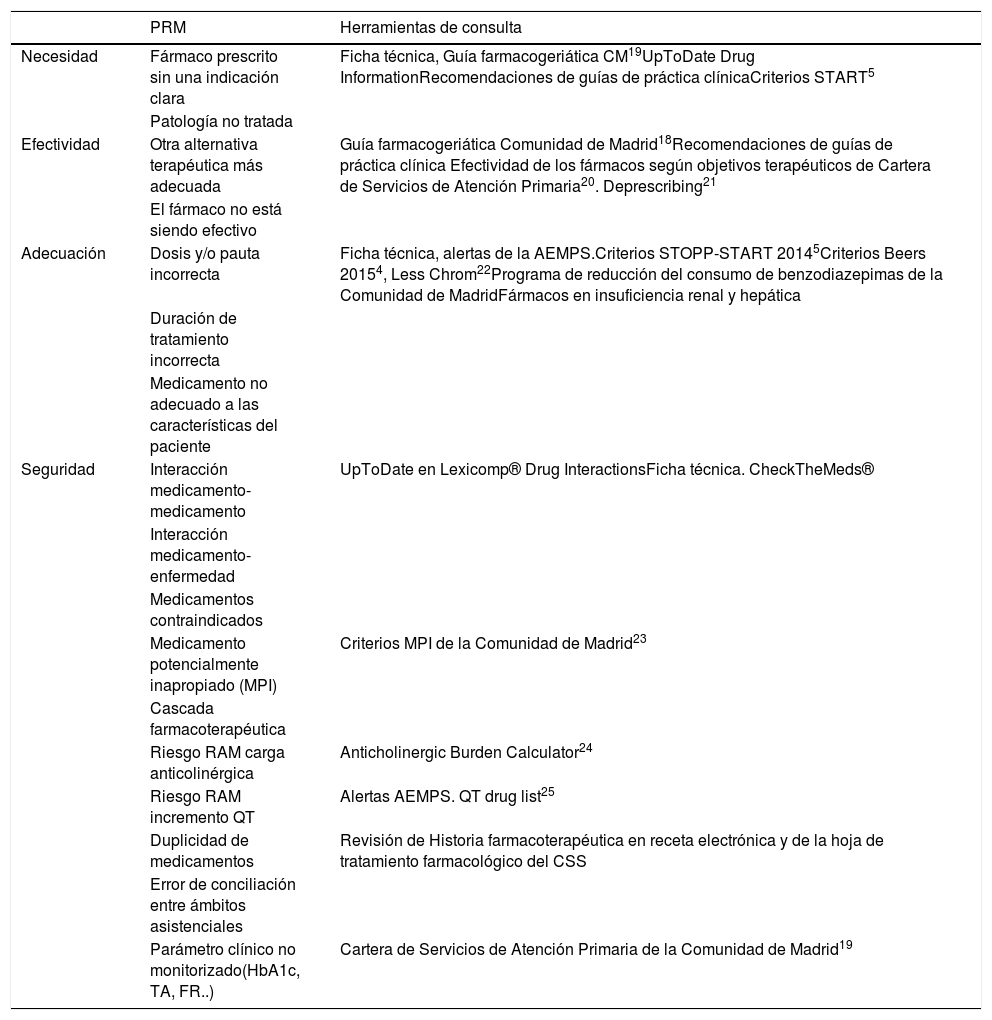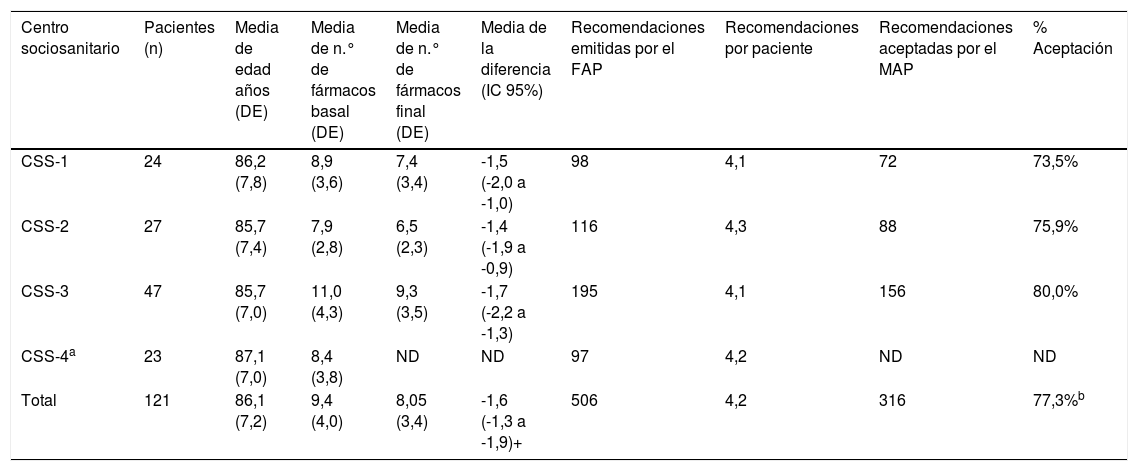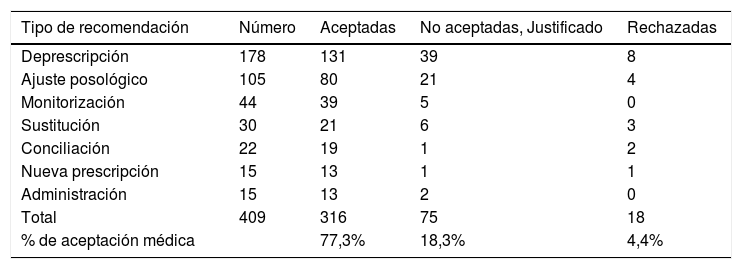Durante la pandemia por COVID-19 se contó con un médico de apoyo a los centros sociosanitarios de nuestra Comunidad Autónoma, lo que permitió realizar una intervención multidisciplinar para revisar sistemáticamente la medicación prescrita a las personas institucionalizadas; el objetivo de este estudio es evaluar el impacto de esta intervención en la reducción del número de fármacos/paciente.
MétodosEstudio multicéntrico prospectivo antes-después de una intervención en la que participan médicos y farmacéuticos de atención primaria en 4 centros sociosanitarios de menos de 50 residentes. Se realizó una revisión sistemática de la medicación a través de un algoritmo, donde se identificaron problemas relacionados con los medicamentos (PRM), los cuales fueron comunicados al médico por el farmacéutico de atención primaria a través de recomendaciones en la prescripción. Se midió el grado de aceptación por el médico de dichas recomendaciones.
ResultadosSe revisaron 121 pacientes con una edad media de 86,1 años (DE 7,2); el 87,6% eran mujeres. De estos, se pudo realizar la intervención en 98 pacientes que tomaban una media de 9,4 fármacos (DE 4,0), con una disminución estadísticamente significativa de -1,6 fármacos (IC95% -1,3 a -1,9) p<0,001 después de la intervención. En estos, se detectaron 409 PRM, con una media de 4,2 PRM por paciente. Todos los PRM formaron parte de una recomendación, de las cuales fueron aceptadas 316 (77,3%). La mayoría de las recomendaciones fueron de prescripción o ajuste en la posología de un medicamento. Los psicofármacos, antihipertensivos y analgésicos fueron los grupos terapéuticos mayoritariamente implicados en los PRM detectados.
ConclusionesSe ha observado una reducción estadísticamente significativa en el número medio de fármacos por paciente tras la intervención. Se han identificado PRM a través de la revisión sistemática de la medicación por el farmacéutico de atención primaria que han sido mayoritariamente aceptados por el médico.
Having a general practitioner in nursing homes during the pandemic by COVID-19 has allowed a multidisciplinary intervention to systematically review medication in institutionalized elderly patients; the objective of this study is to evaluate the impact of this intervention in reducing the number of drugs/patient.
MethodsA prospective multicenter study before-after of an intervention involving general practitioner and primare care pharmacists in 4 nursing homes of less than 50 residents. A review algorithm was used to identify Drug-Related Problems (DRPs) that were part of the primare care pharmacists recommendations. The degree of acceptance by the physician of these recommendations was measured.
Results121 patients reviewed with a mean age of 86.1 years (SD: 7.2); 87.6% were women. Of 98 patients analyzed, had an average of 9.4 (SD: 4.0) drugs/patient, was reduced by −1.6 [CI 95% −1.3 to −1.9] p<.001 after the intervention, the different was statistically significant. 409 DRPs were identified, an average of 4.2 per patient, who were part of a recommendation of which 316 (77.3%) were accepted. Most of the recommendations concerned deprescription or dose adjustment. Psycholeptics, antihypertensives and analgesics were the therapeutic groups most commonly involved in the detected DRPs.
ConclusionsA statistically significant reduction in the mean number of drugs/patient following intervention has been observed. Many DRPs have been identified through the primare care pharmacists review, which have mostly been accepted by the physician.












